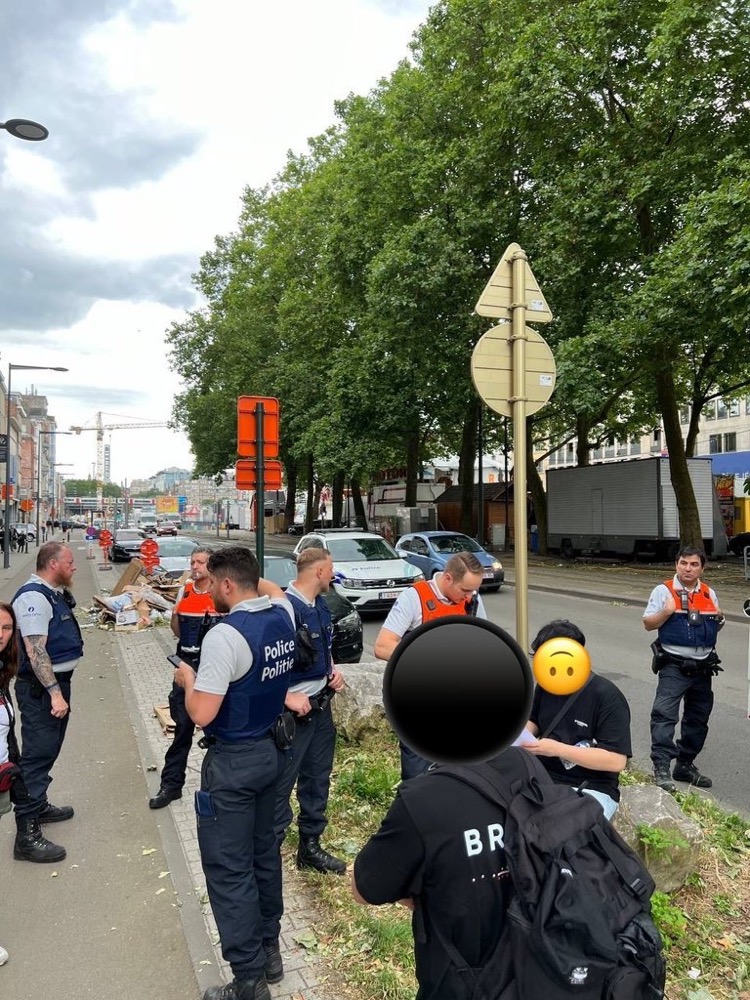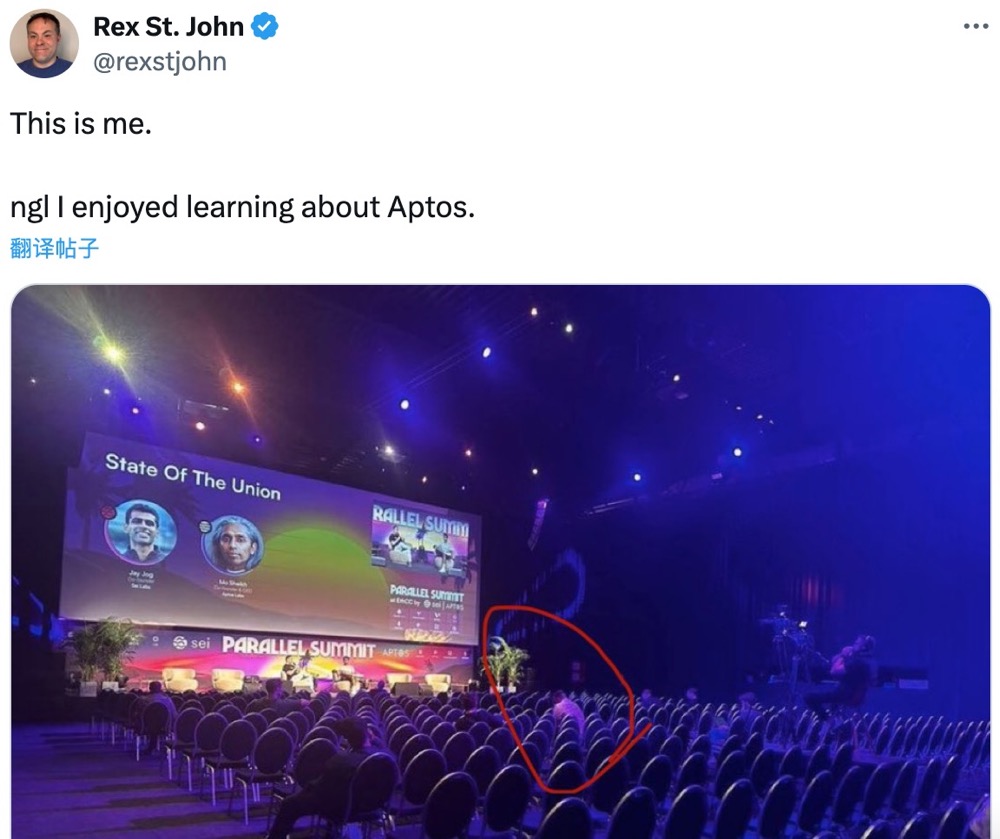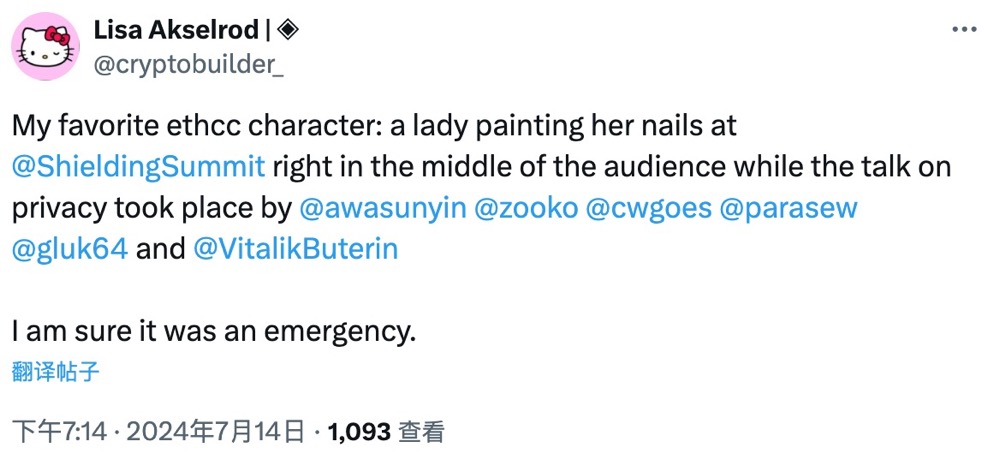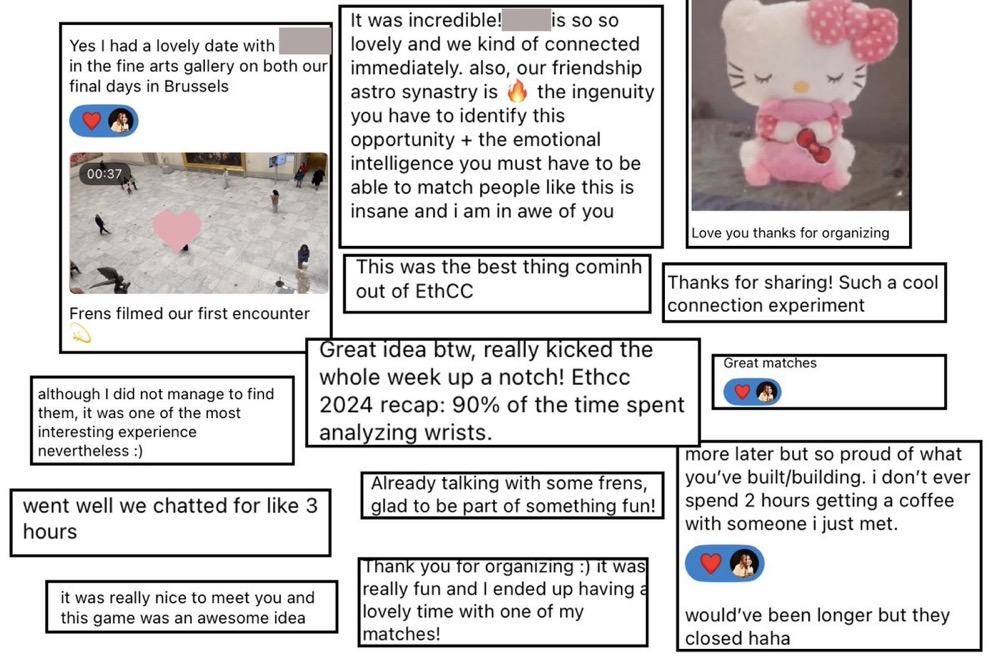Authored by: Yangz, Techub News
From July 8th to July 11th, the 7th EthCC was held in Brussels, Belgium. As an annual gathering for Ethereum technology and community, the conference invited a total of 350 speakers and organized over 500 peripheral activities. However, apart from the discussions on Vitalik's speech, especially his thoughts on "Ethereum network should respond to 51% attacks in a more automated way," and the report on the "century group photo" of the three core founders of Ethereum, Vitalik Buterin, Joseph Lubin, and Gavin Wood, there were not many other discussions within the industry. When browsing posts about EthCC on Twitter, the author found that in addition to the reviews of the event by project parties and various group photos shared by KOLs, there were also many criticisms and interesting stories mixed in.
Plenty of Criticisms
First, many participants expressed dissatisfaction with the choice of Brussels as the venue for this conference. Unlike in the past, due to the Paris Olympics, EthCC chose to be held in Brussels, the capital of neighboring Belgium. However, many attendees felt after the conference that "Brussels is nice, but we won't come next time."

Some participants reported that non-EU residents had to wait in line for 3-4 hours at the Brussels airport customs, resulting in a very poor experience (of course, this doesn't seem to be the fault of the EthCC organizers). In addition, the security issues at the venue also became a major complaint of this EthCC. Several participants claimed to have been robbed near the venue, and "many thugs targeted cryptocurrency professionals." @0xmarcello recalled that within less than a week, he was not only hit by a car and dropped his phone, but also encountered many "fellow sufferers" when buying a new phone at the Apple store, which can be described as "a real disaster." The hardware wallet OneKey also took the opportunity to list the "anti-theft guide for cryptocurrency practitioners" (the operations team needs to work harder?). Although the organizers strengthened security measures after the incidents and advised participants not to display the conference logo in public places, this terrible experience may be hard to erase from the minds of the attendees.

In addition, the agenda of this EthCC also received many criticisms. Some people reported that the main venue was sparsely populated, and others mentioned that the peripheral activities were not well received. In short, there was a huge difference in the on-site situations of different activities. Unlike the packed scene when Vitalik delivered the keynote speech, many peripheral activities may not have had as many attendees. Rex St. John, a member of the Anza team, the developer of the Solana client Agave, @rexstjohn, shared a photo of himself participating in a peripheral activity related to Aptos. It is obvious that the audience was very few. This inevitably raises the question: was it necessary to set up over 500 peripheral activities, or was it just to showcase the "grandeur" of the event?

Regarding the conference themes, @cryptobuilder_ summarized the key points of discussion at this EthCC with the following image, including zero-knowledge (zk), multi-party computation (MPC), fully homomorphic encryption (FHE), artificial intelligence (AI), and trusted execution environment (TEE).

As a technical event, the discussions at EthCC about these topics seem to have no criticisms, but Mike Ippolito, co-founder of Blockworks, commented, "Last year, I ended my EthCC journey with enthusiasm, but this year I find it hard to identify a common theme for the event. The excessive number of peripheral activities has made the entire event very fragmented. Worst of all, there are no applications." Nate Hindman, a member of the Molecule team, a funding platform for DeSci and former head of growth at Bancor, also commented that the most common feedback he heard during the conference was "boring." Sandy Carter, Chief Operating Officer of Unstoppable Domains, pointed out in a Forbes article, "The conference delved into complex topics such as protocol optimization, smart contract security, and scaling solutions, providing profound insights for those with technical backgrounds. However, the content for business leaders, policymakers, and newcomers to the blockchain field without a technical background was clearly lacking." Interestingly, @cryptobuilder_ shared a story that indirectly confirmed the "more technology, less application" issue at the conference. According to his description, during a group discussion on privacy topics between Vitalik and zkSync founder Alex Gluchkowski, a participant sitting in the middle of the audience started painting their nails.

Regarding the event themes, Antonio Juliano, the founder of dydx, expressed his views from an industry perspective. Antonio stated, "In the past year, discussions about cryptocurrencies have been repetitive," and "I love my profession because I always feel the energy of the industry collectively creating novel, ambitious, and meaningful things. But now, I don't feel it anymore. I no longer care about new infrastructure, venture capital, or the 10,001st DEX." Antonio pointed out that the question we need to consider is, "What are we building that people in the real world truly care about? What can change the world?"
Similar to Antonio, Tommy from Crypto.com expressed his reflections on the current industry situation after one-on-one discussions with participating projects, VCs, and market makers.
According to Tommy, many venture capitalists expressed their interest in consumer dApps, but looking at recent funding announcements, it is evident that the financing market still primarily focuses on infrastructure transactions. Additionally, Tommy learned that VCs' interest in investing in early-stage projects with high FDV is diminishing, as the FDV of many projects supported by VCs has fallen below the level of the previous round of private financing. Furthermore, due to the overall poor performance of altcoins, many funds are running out of "ammunition."
After discussions with participating projects, Tommy pointed out the issue of the current industry being "old wine in new bottles." Just as the previous round of tokenized securities projects transformed into the current RWA narrative, many projects have added the "chain abstraction" label to themselves, and most DePIN projects have also incorporated the "AI" element into their brand strategy to attract the attention of venture capitalists.
In Tommy's view, repackaging is not wrong, but finding a narrative that the market will buy into is not easy. The market is waiting for the next new narrative, not a narrative repackaged from an old one. Additionally, not all narratives are "investable." For VCs, if they blindly chase narratives without analyzing the vertical domain (product), they may end up investing in the hottest narratives in the wrong vertical domain.
Furthermore, after conversing with market makers, Tommy discovered that the competition among market makers has become increasingly fierce. Some market makers are lowering prices to win trades. As project parties deepen their understanding of different market makers, the transparency advantage of market makers in negotiations is also disappearing.
Not Without Interesting Stories
Of course, in addition to various criticisms, this year's EthCC also had many interesting events, such as the "on-chain wedding" hosted by Cami and David Phelps from Berachain, which envied others.

Similarly, @amelia_guertin organized a social experiment called "Crypto Soulmates" during EthCC. Amelia Guertin stated, "Many cryptocurrency professionals are immersed in their own circles, unable to meet new friends or establish deeper connections." To address this, she envisioned "matchmaking" for people in the crypto community by collecting the interests, values, personality traits, and wallet addresses (to understand on-chain behavior) of EthCC attendees. Amelia Guertin mentioned that the experiment initially targeted 30 people, but 150 people filled out the questionnaire, and ultimately 120 people actually participated in the activity. The feedback from participants indicated that the event was well-received.

Additionally, the "reunion of old friends," a common joy at conferences, was also evident at this year's EthCC. Hudson Jameson, former Ethereum Foundation developer and current Polygon VP, encountered 4 old friends during his trip to Brussels. Initially, Jameson thought they might be ordinary fans on Twitter, or he might have met them through the Ethereum Foundation or Polygon Labs, but after the conversation, he found that they had met because of a football match of West Ham United Football Club. Jameson commented, "I don't know what this means, but this is the third most surprising thing of this trip and my favorite story."
Indeed, as reflected by many participants, this year's EthCC had many criticisms, but considering the manpower and resources required to organize a conference, it may not be a big deal. Like Jameson, arranging the schedule reasonably, not attending too many parties, and choosing to reunite with old friends may bring more surprises than simply attending the conference.
Future Vision
Finally, I would like to conclude with the vision for future cryptocurrency conferences by Jill Gunter from Espresso Systems. "EthCC is great, but I don't want to attend other conferences. Instead, I want to attend an expo, a world expo for cryptocurrencies. No more forums, no more speeches. Show me the future! Show me what you are building! Let me touch it, feel it, use it!"
Will the next EthCC in Cannes bring a different experience?
免责声明:本文章仅代表作者个人观点,不代表本平台的立场和观点。本文章仅供信息分享,不构成对任何人的任何投资建议。用户与作者之间的任何争议,与本平台无关。如网页中刊载的文章或图片涉及侵权,请提供相关的权利证明和身份证明发送邮件到support@aicoin.com,本平台相关工作人员将会进行核查。




